On 9 September, James Cartlidge MP tabled a series of written questions to the Ministry of Defence on the department’s civil service workforce and cost reduction plans, referencing page 65 of the Strategic Defence Review.
Minister Al Carns confirmed that the ambition is to reduce civil service-related costs by at least 10% by 2030 under the Defence Reform and Efficiency Plan.
He explained that the review will cover the full workforce mix, noting that “we are working across Defence to review the workforce we need to deliver Defence outcomes, making sure we have got the requirement right, whether that is Regular or Reserve personnel, Civil Servants or contractors.”
Carns also stressed that the drive is about efficiency rather than shrinking staff numbers. “Importantly, this is a productivity-driven ambition, not a headcount target,” he said, adding that civil servants remain “integral to success.”
He said the Ministry would invest in performance, skills, and productivity to create “a stronger, more agile organisation to deliver better outcomes through smarter use of technology, less bureaucracy, and higher productivity.”
The baseline review of Head Office and Staff Headquarters roles is being developed as part of this broader effort, which Carns described as both a cost-saving measure and an opportunity to embed automation and AI across the department.


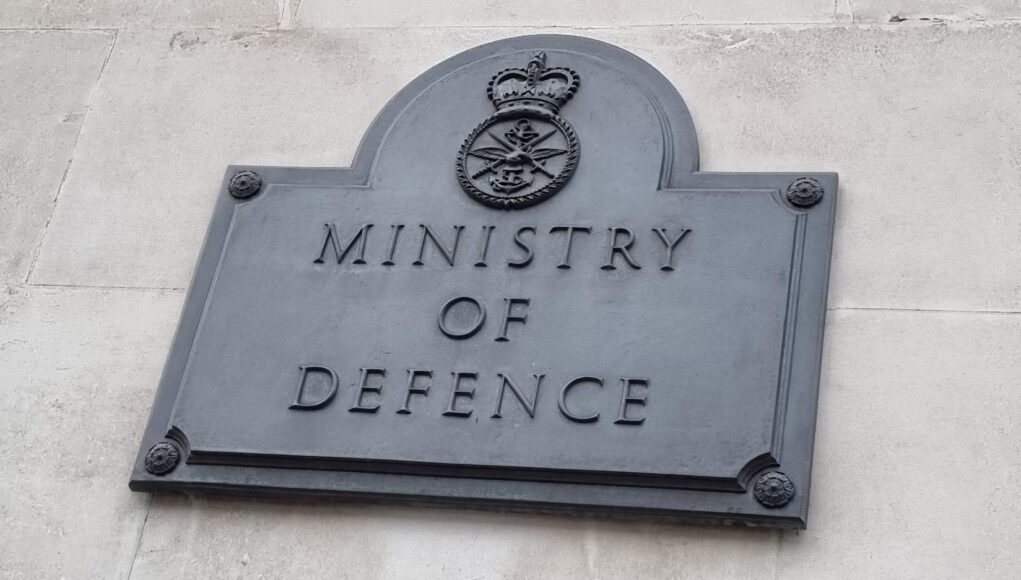
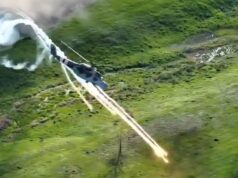
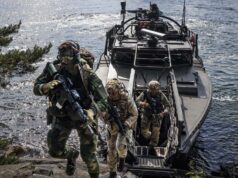
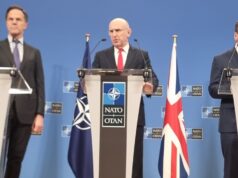
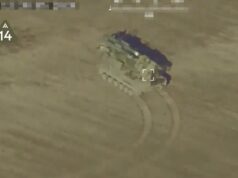

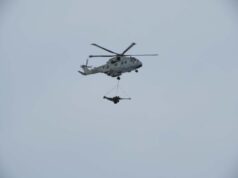


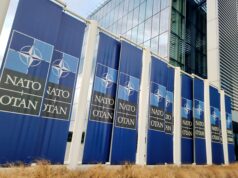

Needs to be 30% at least – start with the Legads
Why are all the retired senior officer s still keep there pay and extras. When thay are not working. This is costing the country a fortune.
How about a 10% reduction in senior officer positions.
How can the Army possibly need 70 Generals when it doesn’t even have 7 brigades.
My point as well. Way too top heavy like the Navy, would save a good bit of cash. You and i both know it will never happen its jobs for the boys. Been brought up before and it was quickly dropped with no real reason why it could not happen. CDS never like speaks of such things i think we the lower ranks are just meant shut up mind our place.
Oh God, not this again….
The Army has more than just Brigades, so that comparison isn’t valid.
There are not 70 Generals. Assume you’re including Major and Lt General in that 70.
Army officers will also be with:
NATO. MoD HO&CS. Purple posts, so Strat Com. Exchange posts. The top has also been trimmed at least twice, for example, many previous 1* posts are now Colonel’s posts.
The army and wider defence has HUNDREDS of Directorates, Commands, organisations, and Schools where Private Pike isn’t suitable as head for organisations with hundreds of military and CS staff with budgets running into many tens of millions. Staff posts in HQ orgs are not just a General either, you have deputies, CoS, and so on.
Once all these posts are cut, who takes responsibility? A Sergeant ? A WO? Defence is a complex organisation that is more than the bits that go bang.
Perhaps I’ll list all the Organisations of wider MoD and the three services so we can suggest who takes over.
OK, just to try to prove my point. Taken this from my Army file, all 1 Star and above positions that I am aware of. So Brigader up to MG to LG to General.
There will be many more I’m clueless about, and this does not include Army 1 star posts in purple, those in MoD, NATO, or exchange posts overseas.
Tell me, anyone, what replaces this when we cut them? The Army is still, even at “only” 73k, a big complex organisation and miss informed calls to just cut top brass do not cut it, sorry. Who runs these organisations and takes responsibility ?
Headquarters 101 Operational Sustainment Brigade
Headquarters Army Special Operations Brigade
Headquarters 11th Brigade
Headquarters Home Command
Chief of Staff, HC
Arms & Services
Army Personnel Services Group
Headquarters Regional Command
Chief of Staff Regional Command
Army HEADQUARTERS ( CGS )
Deputy Chief of the General Staff
Brigadier Army Staff
Chief of Staff Army HQ
Directorate Futures
Capability Directorate Combat
Capability Directorate Combat Support
Capability Directorate Information
Capability Directorate Combat Service Support
Directorate Strategy
Army Directorate Operations & Commitments.
Head of Reserves Strategy
Head of Strategy
Directorate Support
Directorate Equipment
Directorate Logistics.
Directorate Reserves ( Army )
Reserves Strategy.
Directorate Army Basing and Infrastructure
Hd Infrastructure
Directorate Information
Hd Capability Strategic Development
Hd Information Exploitation
Hd Information Superiority. ( ISTAR )
Directorate Capability
Military Capability ( Plans )
Hd Military Integration & Portfolio
Hd Capabilty Combat
Hd Capability Combat Support
Hd Medical Capability
Hd of Training
Hd Capability Combat Service Support
Commander Field Army
Deputy Commander Field Army
Chief of Staff Field Army
Headquarters Land Operations Command
Assistant Chief of Staff Training
Assistant Chief of Staff Land Forces
Assistant Chief of Staff Warfare
Headquarters Joint Aviation Command
Directorate Operations JAC
Directorate Capability JAC
Brigadier Equipment Strategy ( Army )
Army Inspectorate
Directorate Personnel Services( A )
HQ Provost Marshal. ( Army )
Directorate of Army Legal Services
Legal Advisory.
Headquarters 1 Military Police Group
Directorate Command Battle Space Management J6
Command Control Development Centre
Headquarters 3rd ( UK ) Division
Headquarters 12 Armoured Brigade
Headquarters 20 Armoured Brigade
Headquarters 8 Engineer Brigade
Headquarters 4th Infantry Brigade
HQ – School of Infantry
Infantry Training Centre
HQ – Royal School of Military Engineering
Headquarters 16th Air Assault Brigade
Headquarters 7 Light Mechanized Brigade
Headquarters – 77 Brigade
HEADQUARTERS Allied Rapid Reaction Corps
Chief of Staff ARRC
Deputy Chief of Staff CSS ARRC
Chief G2 ARRC
Chief Engineer ARRC
Chief Joint Fires ARRC
Chief G7 & Training Development ARRC
Headquarters 1st ( UK ) Signals Brigade
HQ – London District
Deputy Commander London District
HQ – Director Army Aviation ( Might now be reduced to Colonel?)
Headquarters 1st Aviation Brigade
Initial Training Group
HQ RPOC North West
Royal Military Academy
Deputy Commandant, RMA
Army Medical Directorate
Director Medical Capability ( Army ).-
Director Army Primary Healthcare Service
Headquarters – 104 Theatre Sustainment Brigade
Headquarters 3 Deep Recce Strike Brigade
HQ – Army Recruiting & Initial Training Command
Director Recruit Training. ( Operations )
HQ – Army Adventurous Training Group
Director Personnel
Directorate of Manning
Directorate Personnel Capability
Head Individual Development
Directorate Children & Young People
Directorate Warfare
Directorate Training
D Land Warfare
Collective Training Group
Combat Manoeuvre Centre
Operational Law Branch
AG C – Training Group
Defence College of Support
Headquarters 1st ( UK ) Division
Military Secretary and GOC Scotland.
Deputy MS
Deputy Commander Cadets.
Head of Future Force Development.
Senior Health Advisor.
Head of International Comms and Engagement.
Director Cyber Intelligence & Information Integration
Head of Information Exploitation.
Deputy CoS HQ Field Army, and Master General of Logistics.
Head of Armed Forces Renumeration.
ACOS Equipment.
Director Programmes
Deputy Military Secretary
Deputy Military Secretary ( Reserves )
Head of Personnel ( Reserves )
Assistant Head of Strategy.
Head of Logistics
Head of Training Capability.
Head of Military Capability Delivery.
Deputy Commander ( Reserves ) 1 UK Div
Deputy Commander ( Reserves ) 3 UK Div
Deputy Commander ( Reserves ) 6 UK Div
Deputy Director Land Warfare.
Head of Individual Development.
Directorate Information Exploitation.
Director Force Development.
Director Recruit Training ( Operations ) DRT ( Ops )
Headquarters – 38th ( Irish ) Brigade & RPOC NI.
Deputy Commander BFC
HQ – British Forces South Atlantic Islands
HQ Directorate Intelligence Corps
HQ – Army Personnel Centre ( Mil Sec )
Chief of Staff
Directorate of Manning & Career Management
Service Prosecuting Authority
Standing Joint Force Headquarters
Joint Force Headquarters
Joint Force Headquarters CoS
HQ Joint Force Logistic Component
Army Officer Selection Board
Great post mate. A lot of work went into that. Many staff posts in NATO being filled by senior officers. Many Military Attache posts in our Embassies and High Commissions, the most important countries warranting a 1-star at least. As you say there are periodic reviews of such posts and the domestic ones and culling does happen.
Daniele, Great post mate. A lot of work went into that. Many staff posts in NATO being filled by senior officers. Many Military Attache posts in our Embassies and High Commissions, the most important countries warranting a 1-star at least. As you say there are periodic reviews of such posts and the domestic ones and culling does happen.
Thank you, Graham, I appreciate that.
Yes, it took me a while.
The cutting officers calls irritate me, as it’s just not that simple.
Good points on the DA network. I’d not listed them as was only detailing the Army and Field Army.
When adding MoD, and purple, so many more.
In the scheme of things the savings would be peanuts. The mayhem that would be caused if you started this type of reorganisation would make our enemies very happy.
I think it would be better if we focused on filling the vacancies amoungst the rest of the ranks and providing kit for them to use.
Jim, surely you know that most General officers are in senior staff roles, including Defence Diplomacy posts. The size of the Field Army is largely irrelevant.
This might *not* be good news.
Otherwise whom is going to be overseeing the huge amount of money that will have to be spent well?
Please don’t say that 2 year rotation of posts will do that – particularly with the British army that brought you AJAX and several other programs to be cancelled after vast amounts of spending. I Interviewed most of the army side ‘project managers’ / desk officers and I can honestly say they were all useless.
SB, you blame army staff for the Ajax debacle. Civil servants, Industry and politicians had as much, if not more to do with it. The Army only materially changed the Requirement once in a very long gestation period.
This!!! Conveniently losing sight that the Civil Servants were the continuity and ‘expertise’ the Army desk officers were there to advise on capability requirements mainly and assisst. They had to change the capability requirement, because in the 30 years (exaggerated for effect, but only just) since the project started, things changed! If the project was delivered in a reasonable time frame, these would have been mid life upgrades!
Hmm isn’t this why we have the civil servants, to provide this continuity and advice?!
So all the staff will spend their time creating quangoes so they are not civil servants.
Should get some of the ‘star’ ranks gone there far to much top and not enough bottom in the MOD right now.
I think I could get a job there 🤔
Ex CDS Radakins recent comments speaks volumes ‘We have increased senior civil service numbers in defence by about 85% since 2018 even as defence has got smaller and the military star count has remained largely static.’
He spoke about on line meetings with 20 to 30 people on line and his inability to deal with the bureaucracy, which he said was strangling decision making and progress across the whole of Whitehall.
My experience of many in the public sector on TEAMS calls is they keep cameras turned off and it is doubtful if they are actually engaged in the meeting at all. There does now seem to be an effort by some at least to address this issue but it is hard to change the habit from what I am witnessing.
‘We have increased senior civil service numbers in defence by about 85% since 2018 even as defence has got smaller and the military star count has remained largely static.‘
I think that means grading inflation as they were struggling to recruit and retain when external salaries went into orbit.
Yep that is the problem, state salary control only works in state controlled workforces, if the state has to compete with the private sector it cannot suppress wages in high skill/knowledge based workforces.. unless it can control the training and education, this is how it keeps control of healthcare workforce pay.. as the only organisation that trains healthcare professionals in the UK is the NHS and so external training to develop is almost impossible so it can control the workforce.
If you all turn your cameras on for a large Teams meeting there’s a good chance that the bandwidth requirements will be too much for the infrastructure to handle and the connection will start dropping out. Good old Microsoft.
Shocked, shocked I tell ya
Where is the senior officer in charge of DEI?
Right I’m off to dye my hair purple
Sometimes this seems a good idea but, the savings generally come from culling worker bees ( the admin teams and doing staff) and that then mean your highly paid and rare queens end up doing a worker bee job… from experience the NHS is very good at this.. first it culled all the admin staff who supported the managers and service experts.. who then had to spend half their time ( with their specialist and management salaries ) organising their calendars, filing away random stuff, filling out basic forms and writing up meetings minutes.. which sounds lovely.. but when you consider some at the level I was ( as an expert in emergency care systems) on a very high salary I would spend half my time doing jobs a 17 year old apprentice administrator could do….and better than the 50-60 year old expert who’s job was to know how the emergency care systems worked.. not where form27XF needed filling on the first Tuesday of the month…. it then got worse because they decided to get rid of the “stupidly incompetent managers” who seemed for some bizarre reason to spend most of their time filing stupid bits of paperwork and not making the systems work.. so they culled the managers and experts and got the GPs to do the expert manager roles.. so what happened was the GPs all end up in system planning meeting and workforce strategic planning meeting discussing and making decisions on things they don’t have a clue about.. trying to get the few senior managers left to do their filing and notes for them.. because no one has seen an administrator with short and and touch typing in a decade … and then people start whinging because the system cannot change and it’s got expensive managers and GPs sitting in meetings staring at each other because no bugger wrote the action notes and distributed them from the previous meeting…and no patent can see a GP anymore because they are doing a piss poor job pretending to be health system managers..
The general idea is to get business analysts to rationalise the admin requirements and then automate as much as possible of what remains. Rather than just cutting staff and leaving the bureaucratic overhead untouched. It does not surprise me that the NHS favoured the latter approach though.
Ohh they always got KPMG etc to do the analysis first.